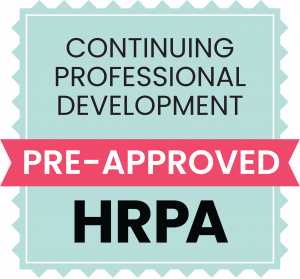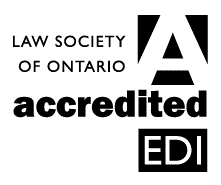Resources
Additional resources from Dr. Raj Bhatla’s presentation.
Lead with Knowledge
Change is a constant in the human resources world: ongoing developments in the law, whether through new legislation or the courts, and the rapid evolution of best practices create a fast-paced learning environment for human resources professionals.
Recent examples of such changes are in the areas of the Employment Standards Act and Labour Relations Act, medical marijuana, E.I. benefits, the Canada Labour Code, discrimination and harassment in the workplace and data security. All of these issues can directly impact the management of your workplace.
Employers must take the lead in responding to these emerging challenges and Hicks Morley is pleased to be your partner in navigating this change.
Join us as we discuss these latest legal developments and more as we present effective tips, strategies and best practices that can help your organization stay on the leading edge of human resources management.
Des connaissances pour unebonne gestion
Dans le monde des ressources humaines, le changement est constant : les nouveautés sur le plan juridique, que ce soit par le biais de nouvelles lois ou des tribunaux et l’évolution rapide des meilleures pratiques créent un environnement dynamique dans lequel les professionnels en ressources humaines doivent apprendre continuellement.
Les changements récents apportés à la Loi sur les normes d’emploi, à la Loi sur les relations de travail et au Code canadien du travail, les nouveautés relatives à la marijuana pour usage thérapeutique et aux prestations d’assurance-emploi, en matière de discrimination et de harcèlement en milieu de travail, ainsi qu’en matière de sécurité des données, en sont quelques exemples récents. Tous ces changements sont susceptibles d’avoir une incidence directe sur la gestion de votre milieu de travail.
Les employeurs doivent prendre les devants et relever les nouveaux défis. Hicks Morley est heureux de vous aider à naviguer à travers ces changements.
Vous êtes invités à vous joindre à nous pour une discussion sur les tout derniers développements dans le domaine du droit, et plus encore. Nous offrirons des conseils et des stratégies efficaces, et nous partagerons les meilleures pratiques afin que votre entreprise demeure à l’avant-plan en matière de gestion des ressources humaines.
Agenda
8:00 |
Registration and Continental Breakfast |
9:00 |
Opening Remarks and Welcome |
9:05 |
A Whirlwind Tour of Critical New Developments in Human Resources Law and AdvocacyA fast-paced, tightly focused review of the legal developments that you need to know about. |
Hashing Out Your Workplace Obligations – How to Deal with Intoxicants at WorkWith the legalization of recreational marijuana, employers are concerned about intoxication in the workplace. We’ll address: What policies and practices are required to deal with recreational marijuana, alcohol, and the use of other intoxicants in the workplace? How do those policies apply when an employee uses an intoxicant for medical purposes? When is an employer justified in testing for workplace intoxication? |
|
Addiction: How to Accommodate, When to DisciplineAddiction has long been recognized as a disability protected by human rights legislation. Addicts often display behaviour that, under ordinary circumstances, would be subject to discipline. Employers have struggled with responding to such misconduct and balancing their accommodation obligations. We review circumstances in which addiction may not be a legitimate excuse for misconduct in the workplace. We’ll also review best practices and suggestions regarding the disciplinary steps and procedure. |
|
New and Longer E.I. Benefits – What You Need to KnowHicks Morley Significant changes have been made to the timing and duration of maternity, parental and other protected leaves of absence and related EI entitlements. Learn how these changes will impact your workplace. Amendments may be required to your Top Up Plans, collective agreements, pension plans, administrative policies, and employee communications. |
|
Data Security – Incident Response and Breach NotificationWhen a data security incident occurs, an organization must respond both quickly and thoughtfully – soon with a view to meeting a nation-wide statutory breach notification requirement under PIPEDA. In this short presentation we will outline the significance of the PIPEDA amendments and explain what makes for effective incident response. |
|
9:45 |
Networking Break |
10:00 |
How to End an Employment Relationship on Good (Contractual) TermsTermination clauses provide an opportunity for certainty and predictability – if drafted properly. These types of clauses, particularly those that provide only the ESA-minimum, are closely scrutinized by the courts. We will review termination language that has withstood such scrutiny and other language that has been soundly rejected. Learn what the courts are looking for when enforcing a termination clause. |
Proactively Managing WSIB Mental Stress ClaimsHicks Morley How will the WSIB’s new Chronic Mental Stress policy impact your workplace? We’ll identify the thresholds put in place for claims of chronic mental stress, including the types of diagnoses considered and the required role of workplace events. How can employers prevent and/or remove stressors in the workplace and proactively manage the costs associated with such claims? |
|
Pay Equity UpdateThe sweeping changes under Bill 148 address issues related to equal pay for equal work under the ESA. While these equal pay for equal work amendments are not the same as pay equity under the Pay Equity Act, the Bill 148 changes to minimum wage and equal pay based on employment status DO have potentially significant implications for the status of your pay equity compliance. The Bill 148 amendments can have significant “hidden” financial consequences for pay equity. We’ll review what you need to know to ensure your pay equity status remains complaint in the post-Bill 148 world. |
|
Claims of Discrimination and/or Harassment – When Should an Employer InvestigateIn recent years, we have seen an increased focus on the issue of the extent of an employer’s obligation to investigate complaints of discrimination and/or harassment and liability for faulty investigations under the Ontario Human Rights Code. We’ll review tips and best practices regarding human rights investigations, including when an investigation must be completed and who should conduct the investigation. |
|
CLC Amendments – Are You Prepared?Under the amended Canada Labour Code, the Minister will have the authority to order employers to complete internal audits to verify compliance with the legislation’s various minimum employment standards. The amendments also establish a penalty system, with administrative monetary penalties, to ensure compliance. Proactive steps can be integral to a successful audit, and to avoiding monetary penalties. Are your documents in order? Do you have the appropriate policies in place? We’ll also review other significant amendments to the CLC, including new leaves and flexible work arrangements. |
|
10:50 |
Networking Break |
Please note that the session below will also be available in French, in a separate break-out room / Veuillez noter que cette séance sera également présentée en anglais, dans une salle distincte
11:05 |
English breakout session |
The Nuts and Bolts of Bill 148Charles V. Hofley / Melissa A. Bastarache Amendments to the LRA will result in increased union access to: employees and industries together with an increased ability to organize, and obtain a collective agreement. This session will provide employers with details of the specific changes to union certification, first collective agreement arbitration, review/consolidation of bargaining units, and just cause protection. |
|
Strategies for Effectively Managing Employees on LTDWe’ll discuss how the LTD claims process intersects with an employer’s accommodation obligations. We’ll also address issues such as: How long should a job be left open while an employee is on LTD leave? When is termination for frustration an option? What obligations/liabilities continue while an employee is on LTD leave? Are there ways to avoid or reduce these obligations/liabilities? Will termination or other payments impact the employee’s LTD benefits? |
|
#ItsNeverOK – Sexual Violence/Harassment in the WorkplaceLeanne N. Fisher / Colin J. Youngman Now, more than ever, sexual violence/harassment in the workplace is an issue. Employers need to ensure that they meet their statutory obligations to prevent, respond to, and investigate allegations of sexual violence and/or harassment. We’ll explore these statutory obligations as well as workplace initiatives and practical strategies to help prevent and/or reduce claims of workplace harassment. |
11:05 |
Séance en petit groupe en français |
Projet de loi 148 – L’essentiel des modifications apportées à la LRTLes modifications apportées à la Loi de 1995 sur les relations de travail (LRT) donneront aux syndicats un accès accru aux employés, à certaines industries, et leur accorderont une meilleure faculté d’organisation et d’obtention d’une convention collective. Cette séance présentera aux employeurs les détails des modifications législatives apportées à l’accréditation des syndicats, à l’arbitrage de la première convention collective, à la révision ou au regroupement des unités de négociation et à la protection contre les renvois pour des motifs injustifiés. |
|
#JamaisAcceptable — La violence et le harcèlement sexuels en milieu de travailHicks Morley Plus que jamais, la violence et le harcèlement à caractère sexuel en milieu de travail posent problème. Les employeurs doivent veiller à respecter leurs obligations législatives afin de prévenir les allégations de violence et de harcèlement, prendre les mesures appropriées lors de plainte, et faire enquête si nécessaire. Nous passerons en revue ces obligations législatives et vous proposerons différentes initiatives et stratégies pour vous aider à prévenir et / ou réduire les réclamations d’harcèlement en milieu de travail. |
|
Stratégies en vue de la gestion efficace des employés percevant des indemnités d’invalidité de longue duréeNous discuterons de l’intersection entre le processus de réclamations d’indemnités d’invalidité de longue durée et les obligations d’accommodements incombant à l’employeur. Nous aborderons également des questions essentielles à la gestion des employés en invalidité longue durée : Combien de temps un emploi devrait-il être gardé pour un employé en congé d’invalidité de longue durée? Dans quelles situations l’impossibilité d’exécuter des tâches reliées à l’emploi peut justifier un congédiement? Quelles obligations ou responsabilités se poursuivent lors du congé d’invalidité de longue durée d’un employé? Y a-t-il des façons d’éviter ou de réduire ces obligations? Le paiement d’indemnités de cessation d’emploi pourrait-il avoir une incidence sur le paiement d’indemnités d’invalidité de longue durée de l’employé? |
11:50 |
Lunch and Keynote Speaker
|
2:00 |
Closing Remarks |
Accreditation
 |
This program has been approved for 4.5 hours of Continuing Professional Development by the Human Resources Professional Association. |
 |
This program contains 1 hour and 35 minutes of EDI Professionalism content and 1 hour and 50 minutes of Substantive content |
